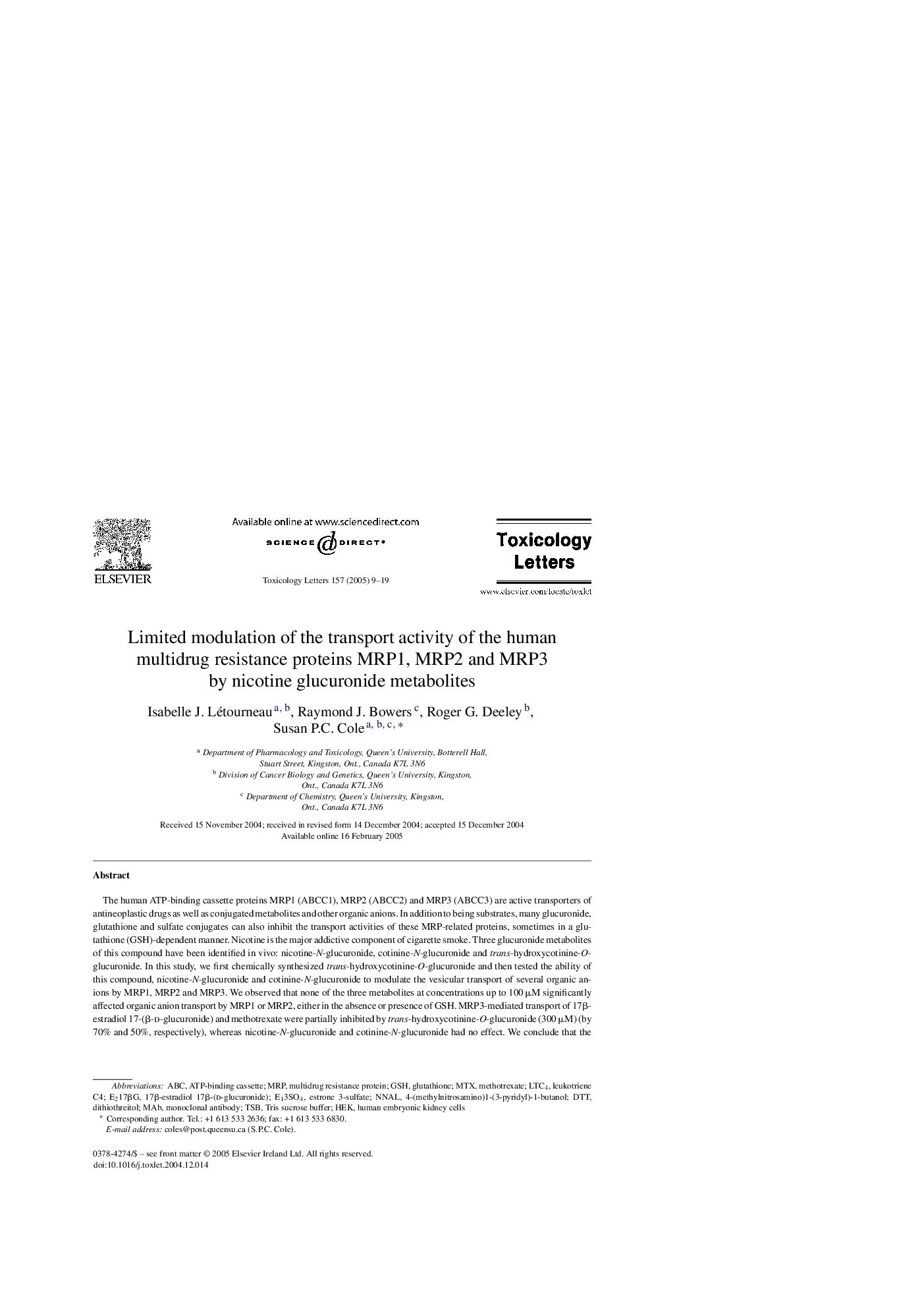| Article ID | Journal | Published Year | Pages | File Type |
|---|---|---|---|---|
| 9037221 | Toxicology Letters | 2005 | 11 Pages |
Abstract
The human ATP-binding cassette proteins MRP1 (ABCC1), MRP2 (ABCC2) and MRP3 (ABCC3) are active transporters of antineoplastic drugs as well as conjugated metabolites and other organic anions. In addition to being substrates, many glucuronide, glutathione and sulfate conjugates can also inhibit the transport activities of these MRP-related proteins, sometimes in a glutathione (GSH)-dependent manner. Nicotine is the major addictive component of cigarette smoke. Three glucuronide metabolites of this compound have been identified in vivo: nicotine-N-glucuronide, cotinine-N-glucuronide and trans-hydroxycotinine-O-glucuronide. In this study, we first chemically synthesized trans-hydroxycotinine-O-glucuronide and then tested the ability of this compound, nicotine-N-glucuronide and cotinine-N-glucuronide to modulate the vesicular transport of several organic anions by MRP1, MRP2 and MRP3. We observed that none of the three metabolites at concentrations up to 100 μM significantly affected organic anion transport by MRP1 or MRP2, either in the absence or presence of GSH. MRP3-mediated transport of 17β-estradiol 17-(β-d-glucuronide) and methotrexate were partially inhibited by trans-hydroxycotinine-O-glucuronide (300 μM) (by 70% and 50%, respectively), whereas nicotine-N-glucuronide and cotinine-N-glucuronide had no effect. We conclude that the physiological functions of MRP1, MRP2 and MRP3 are not likely to be substantially affected by nicotine glucuronide metabolites at concentrations achievable in human serum.
Keywords
Related Topics
Life Sciences
Environmental Science
Health, Toxicology and Mutagenesis
Authors
Isabelle J. Létourneau, Raymond J. Bowers, Roger G. Deeley, Susan P.C. Cole,
